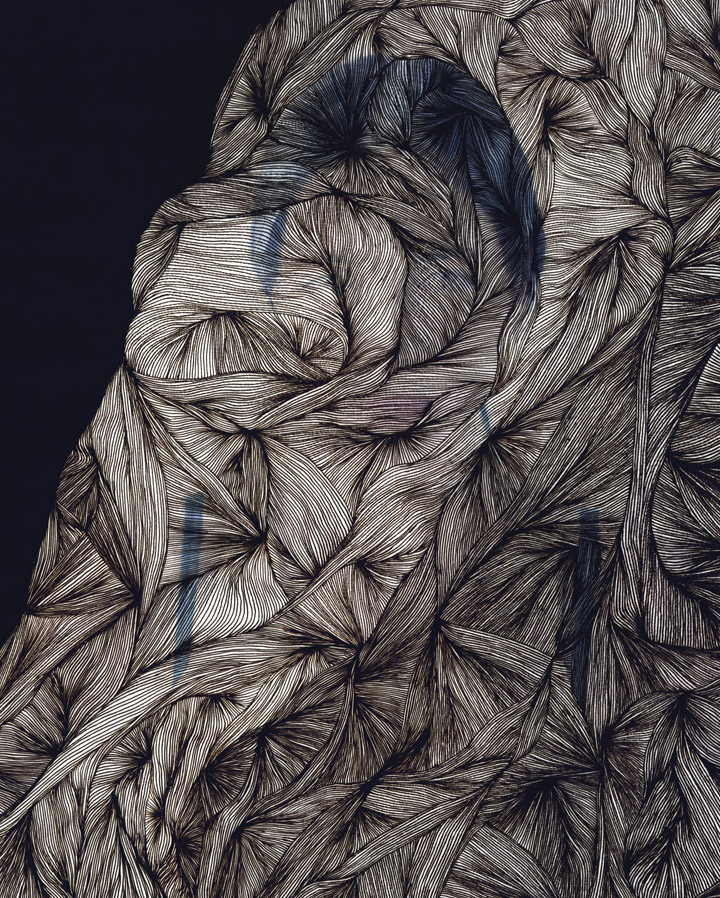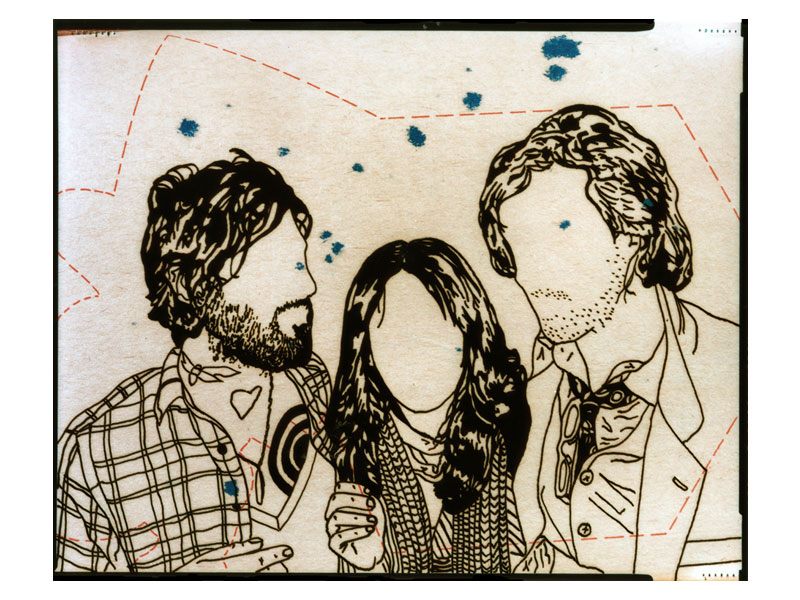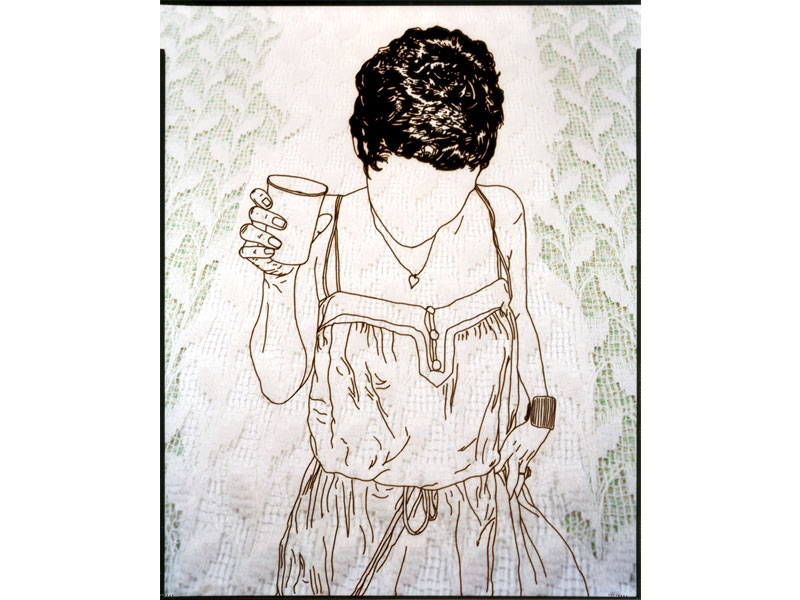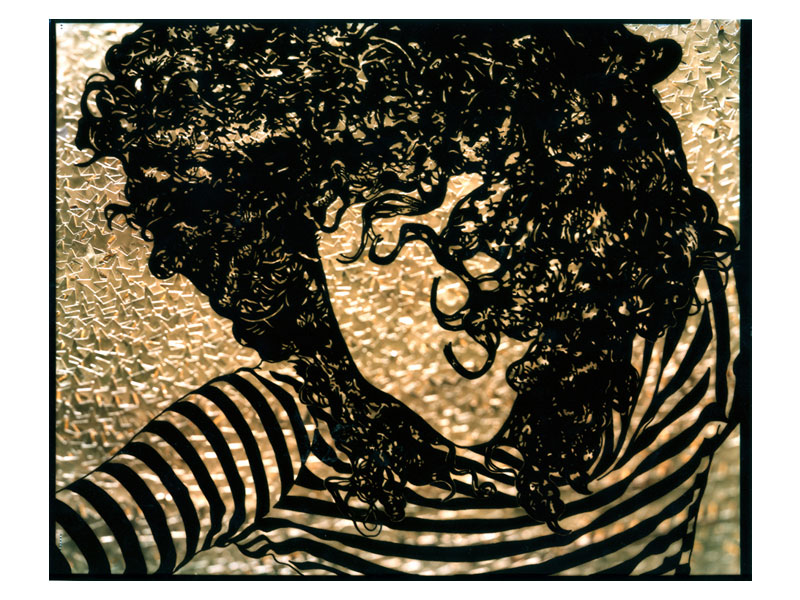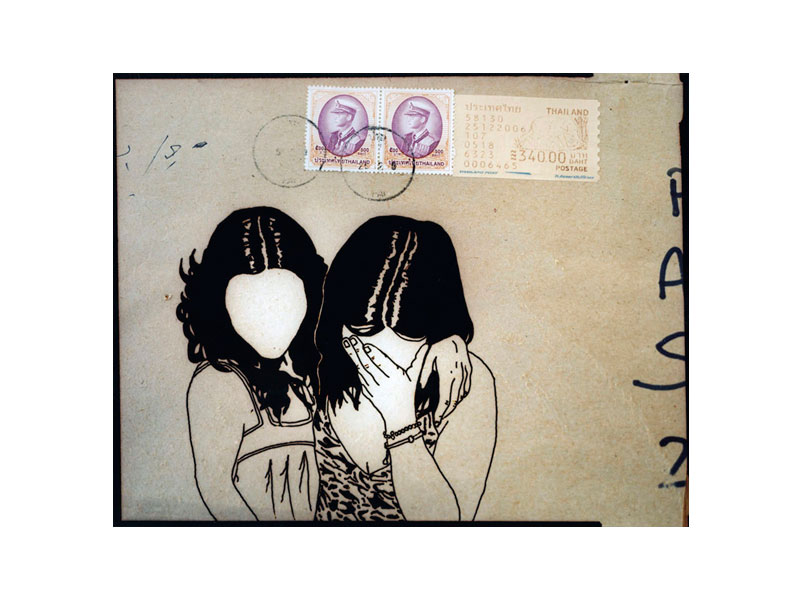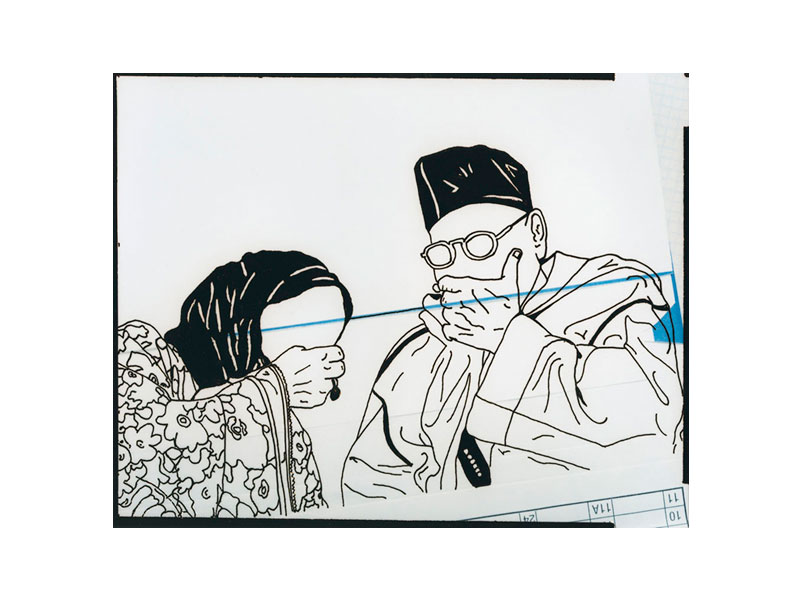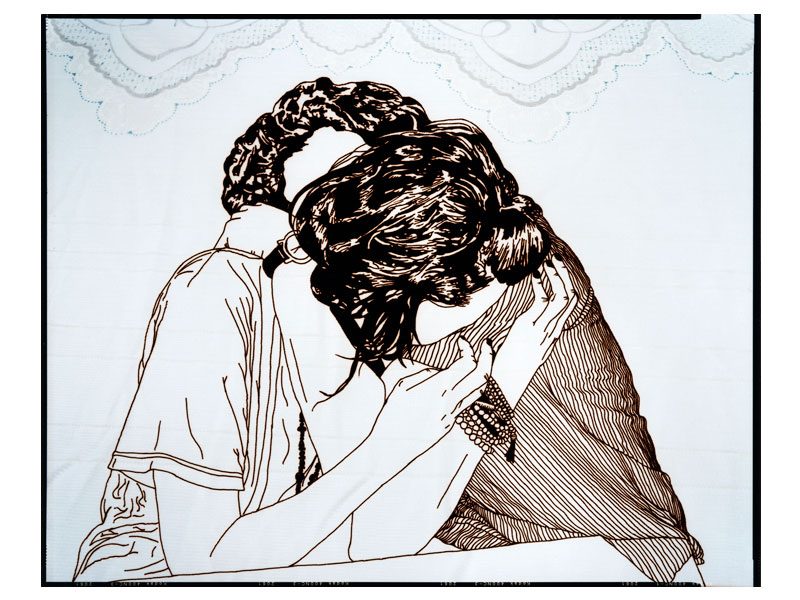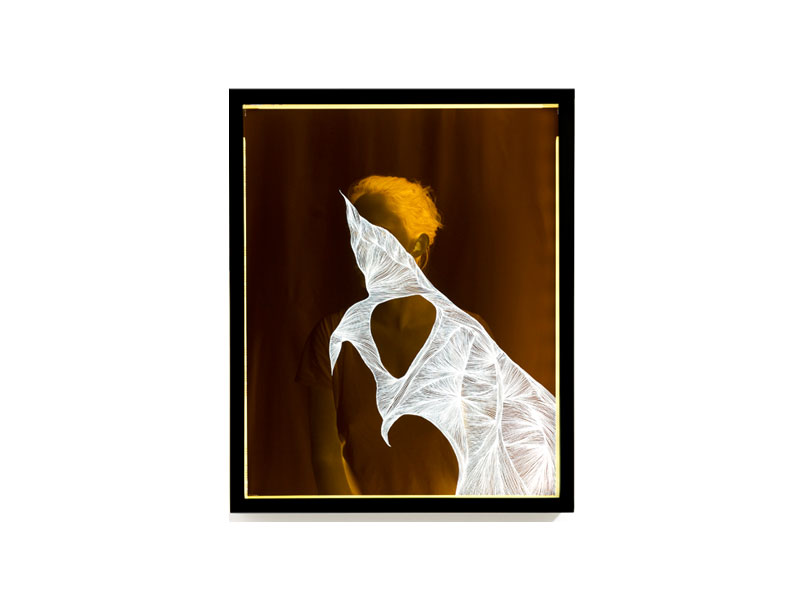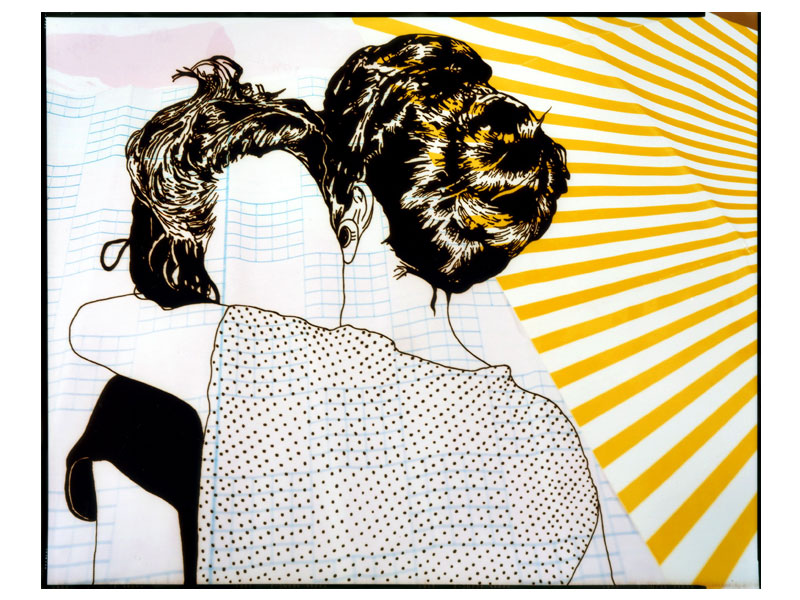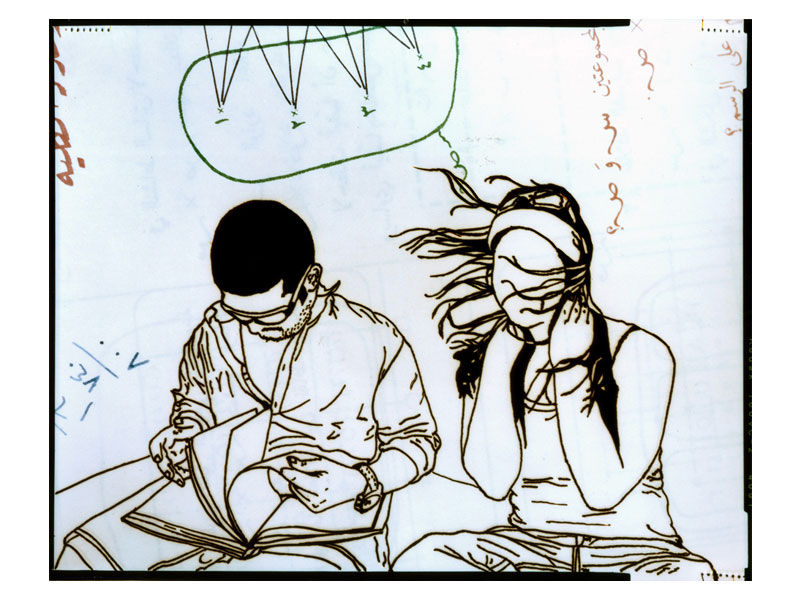Free Expression: A studio visit shows how the photographer obscures her images in order to reveal.
Negative #6 (from the Knots series) - large format negative on lightbox. 8.75 x 10.75''. 2012
J
owhara AlSaud’s images reveal the latent possibilities of her medium, photography. In manipulating portraits of friends and family in her series Out of Line (2008-2010) and further obscuring her subjects in Knots (2011-2012), the artist explores social and authoritarian notions of censorship. She draws on traditions and taboos in her native Saudi Arabia and other Arab Gulf countries, investigating the barriers between private and public as she subtracts visual details from her work to conceal certain forms and reveal others.
The negatives AlSaud produces become a surface for editing. She scrapes away the emulsion with dental tools and engravers, leaving behind lines that trace each figure. As she describes it, “You end up with something similar to a stencil, but instead of paint, it’s light that fills in the blanks.” In Knots, the artist is inspired by the idea of the mashrabiya—Arabic for an ornamental latticework window or separator. Here, she draws knots that perform as screens that are applied directly over her portraits, playing with negative and positive space.
AlSaud covers up by scratching away at the surface. By concealing, emptying, and partitioning, she looks at what censorship might mean in both the public and private spheres. Ultimately, her work suggests that the meaning of censorship is twofold: censorship as a form of authoritarian control, and censorship of the self so as to remain anonymous.
—Fawz Kabra
Jowhara AlSaud was runner-up for the 2008 Aperture Foundation Portfolio Prize, a Magenta Foundation’s Flash Forward 2010: Emerging Photographers finalist, and the International Photography Awards 2010 finalist. She has exhibited her work internationally in both group and solo shows, most recently at the Victoria & Albert Museum, London. She has also exhibited at international art fairs in Miami, New York, Chicago, Palm Beach, Paris, Mexico, Rotterdam, Dubai, and Art Basel, Switzerland.
Jessica Pishko: The News From San Quentin
